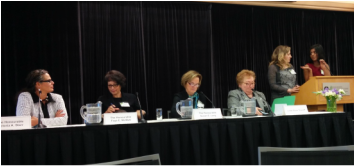|
In Maurice v. Alles,[1] the Ontario Court of Appeal confirmed that the two year limitation period under the Limitations Act, 2002[2] applies to oppression remedy claims under the Ontario Business Corporations Act,[3] including to claims of “ongoing” oppressive conduct.
However, the Court of Appeal set aside an order for summary judgment dismissing the oppression claim as being statute barred, as the motion judge failed to determine that a new discrete act of alleged oppressive conduct had occurred within the two-year period prior to the commencement of the claim. The Court also confirmed that summary judgement motions are not available in the context of an application, unless the application is converted to an action. The Dispute The facts involve siblings disagreeing over their interests in three family businesses. At a shareholders’ meeting on July 25, 2008 the siblings of the Appellant advised him of an upcoming sale of certain shares to an undisclosed third party. The Appellant opposed the transaction advising that any sale without unanimous consent would breach the unanimous shareholder agreement and that they should obtain a valuation, as the sale could adversely impact the value of his shareholding in one of the companies. The Appellant also requested certain information regarding the transaction. The siblings denied or ignored his requests and continued to do so long after the sale was completed.[4] On May 13, 2013 the siblings brought a motion for an order appointing a valuator to determine the fair value of the Appellant’s shares in one of the companies (he had previously sold his shares in the other two companies and offered his shares for sale in the third). The Appellant brought a cross-application claiming that his rights as a shareholder had been unfairly disregarded by the actions of his siblings. The siblings argued his oppression claims were statute barred. The Appellant argued that they were not barred as the oppression was ongoing. Justice Patillo found that the Appellant was aware of the facts giving rise to the oppression claims as of July 25, 2008 (the shareholders meeting), therefore the claims were statute barred.[5] Justice Patillo held that even if the oppression was ongoing, “such continuation does not operate to extend the limitation period beyond the time of two years from discovery.”[6] The siblings’ motion for summary judgment was granted and the cross-application was dismissed. Appeal: Summary Judgment Available in Applications? First, the Court addressed an issue that was not raised before the motion judge: is a motion for summary judgment available in the context of an application? After reviewing the wording of Rule 20, Justice Hourigan, on behalf of the Court concluded that a motion for summary judgment is not available on an application under Rule 14, unless, the application is converted into an action. However, he was not willing to interfere with the motion judge’s decision on this issue as in the circumstances of this case it was merely a procedural defect.[7] Limitation Period for Oppression Claims The appeal decision reviewed the division in case law regarding the applicability of the general two year limitation period under s.4 of the Limitations Act, 2002, to cases of ongoing oppression. In one line of cases the Courts had permitted claims commenced more than two years after discovery if there were ongoing fact situations of continuing oppressive conduct.[8] Another line held that the two year limitation period applied to ongoing oppressive conduct as the limitation period begins to run when the cause of action arises, not when it is remedied.[9] Justice Hourigan concluded that oppression remedy claims under the OBCA are subject to the two year limitation period. Special circumstances are not available to extend the limitation period. In the present case the potential oppressive conduct was twofold: first, the failure of the siblings to provide the Appellant with the requested information regarding the transaction, and the transaction itself could qualify as actionable if it adversely impacted the Appellant’s shareholding. The Appellant knew in 2008 that the sale was happening and that the siblings were not disclosing information. Therefore he had two years to commence a claim for non-disclosure. The continuous refusal to produce documents does not operate to extend the limitation period; limitation periods begin when the cause of action arises, not when it is remedied. Also, this was not a case of ongoing oppressive conduct as the sale was a singular event that occurred in 2008. Justice Hourigan warned: "Courts must be careful not to convert singular oppressive acts into ongoing oppression claims in an effort to extend limitation periods. To do so would create a special rule for oppression remedy claims."[10] However, the Court found another “discrete potentially oppressive act” occurred when the respondent siblings commenced their application on May 13, 2013 for an order appointing a valuator to determine the fair value of the appellant’s shares. In that application there was no reference to the circumstances surrounding the disposal of the shares and what impact it had on the value of the remaining shares. Nor was there any production of the documents requested. The siblings “were in effect seeking a valuation process and payout to the appellant that did not take into account their earlier alleged oppressive conduct.”[11] Justice Hourigan noted the importance of not conflating multiple acts of oppression into one continuous act: "A party that engages in a series of oppressive acts can always make the argument that it is all part of the same corporate malfeasance and that the limitation period begins to run with the discovery of the first oppressive act. In analyzing the conduct, courts must have regard to the remedial nature of the oppression remedy and the fact that any threatened or actual conduct that is oppressive, unfairly prejudicial to, or unfairly disregards the interests of any complainant can constitute a discrete claim of oppression. The oppression remedy section of the OBCA is drafted in the broadest possible terms to respond to the broadest range of corporate malfeasance. Where the motion judge erred was in failing to carefully scrutinize the respondents’ conduct to determine whether there were any discrete acts of oppression within the two-year prior to the commencement of the cross-application. In my view, the siblings committed a new act of alleged oppressive conduct when they brought their application and attempted to rely upon their previous alleged oppressive conduct as part of the share valuation."[12] The motion judge’s reasoning would have meant that where a party is alleged to have acted in an oppressive manner and no oppression remedy application is commenced as a consequence, then he or she would be free to take additional oppressive steps in furtherance of the initial oppressive conduct. That reasoning is contrary to the broad purposive interpretation that must be afforded this statutory cause of action. The Court set aside the order for summary judgment dismissing the oppression claims and directed the parties to proceed to trial. Conclusion This is a warning to all potential applicants in oppression remedy claims to be fully aware of the two year limitation period commencing on the date that the oppression first arises. However, the case also calls for parties to carefully scrutinize the facts and recognize that each potentially oppressive act is its own discrete act with its own limitation period. [1] 2016 ONCA 287 (“Maurice”). [2] S.O. 2002, c.24. [3] R.S.O 1990, c. B. 16 (“OBCA”). [4] Maurice at paras. 5-16. [5] 2015 ONSC 1671. [6] Maurice at para. 21. [7] Maurice at para. 2 and paras.24-35. [8] See Waxman v. Waxman (2004), 186 OAC 201 (CA), leave to appeal refused, [2004] SCCA No. 291 and Metcalfe v. Anobile, 2010 ONSC 5087. [9] See Fracassi v. Cascioli, 2011 ONSC 178, Reinhart v VIXS Systems Inc. 2011 ONSC 5349, Paul v 1433295 Ontario Limited 2013 ONSC 7002, rev’d on other grounds 2015 ONSC 3588, Sterling Waterhouse Inc. v LMC Endocrinology Centres (Toronto) Ltd., 2015 ONSC 3987 rev’d on other grounds 2015 ONCA 645, and Solar Harvest Co. v Dominion Citrus Ltd., 2015 ONSC 1315. [10] Maurice at para. 49. [11] Maurice at para. 50. [12] Maurice at paras. 52-53.
0 Comments
 Last night I attended the third program in the series “Pathways to Power” presented by the Women Lawyers Forum of the OBA. Like the previous two programs, Women in Politics and Women in the Boardroom, it was a very informative and inspiring evening. The program was chaired by lawyer Ashley Waye of Waye Law and articling student Richa Sandill of Rudner MacDonald LLP. Richa mentioned that the impetus for this program was a comment by a former Minister of Justice who implied that women and visible minorities were not being appointed to the bench because they just "aren't applying”. The WLF thought this would be a good opportunity to inform women on how to apply (*smirk*). The ever impressive and talented Linda Silver Dranoff was the moderator and she did not shy away from asking the panel challenging questions. The distinguished panel included The Honourable Susan E. Lang (retired) from the Court of Appeal for Ontario, The Honourable Faye E. McWatt, from the Superior Court of Justice of Ontario, and The Honourable Victoria A. Starr, from the Ontario Court of Justice. A highlight of some of the questions and answers from last night:
As usual the evening ended with a great networking cocktail party. I always meet such fascinating and accomplished women lawyers at these events and last night was no exception. I was also excited to learn that there will be more “Pathways to Power” programs in the future: Women General and In-House Counsel in the Fall of 2016; Women in Politics (the Ottawa edition) in the Spring of 2017; and Female Founders in Spring 2017. I hope to see some of you at these upcoming events. |
Erin C. Cowling is a former freelance lawyer, entrepreneur, business and career consultant, speaker, writer and CEO and Founder of Flex Legal Network Inc., a network of freelance lawyers.
Categories
All
Archives
December 2022
|
|
(C) 2014-2024 Cowling Legal. All rights reserved.
|
Please note I am not currently practicing law.
Information on this website does not constitute legal advice and is for informational purposes only. Accessing or using this website does not create a solicitor-client relationship. See website Terms of Use/Privacy Policy. info@cowlinglegal.com
3080 Yonge Street, Suite 6060 Toronto,ON M4N 3N1 (appointment only) |






 RSS Feed
RSS Feed
